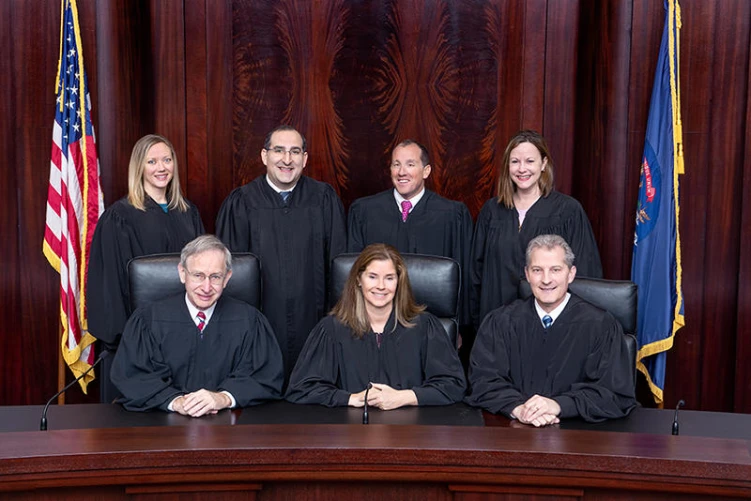- Imprisonment drastically impacts a person’s relationships, employment prospects, mental health, and societal reintegration.
- The aftermath of incarceration includes diminished opportunities, mental health challenges, and the potential loss of voting rights.
- Navigating post-prison life often involves re-establishing relationships, securing employment, and dealing with persistent stigma.
- Avoiding imprisonment involves understanding one’s rights, securing legal help, alternative sentencing, and accepting responsibility.
Imprisonment is a life-altering experience for anyone who has to go through it. It is a loss of freedom, a separation from loved ones, and a total upending of a person’s routine and independence. While imprisonment is a legal sanction for people who break the law, it can have serious and lasting impacts on their lives.
The physical, mental, and emotional effects of imprisonment can be difficult to overcome, and it’s important to be aware of the challenges that exist post-release. If you or someone you know is facing incarceration, here are a few things you need to know about how imprisonment can impact your life.
Relationships suffer
When you are imprisoned, there is a good chance that you will be separated from your family and loved ones. This can have a significant impact on your relationships, as prison can prevent or limit visits from family and friends. This can cause feelings of loneliness, isolation, and depression, leading to a decline in mental health. The strain on relationships can last long after release, and it is important to work to rebuild and strengthen those ties.
Employment prospects decrease
Incarceration can lead to the loss of employment, which can be difficult to recover from later on. Having a criminal record can also create barriers to finding work, housing, and other essential needs. The stigma associated with a criminal record can make it more challenging to gain employment, as employers may view ex-offenders as less trustworthy or reliable.
Mental health struggles

Being in prison can be a traumatic experience that leads to mental health issues, including anxiety, depression, and post-traumatic stress disorder (PTSD). These issues can follow people once they are released, and finding adequate treatment can be difficult. Furthermore, the stigma of being an ex-offender can limit access to mental health services even when they are needed.
Difficulty reintegrating
After release, former prisoners often struggle to navigate the day-to-day routines and expectations of life outside of prison. Finding housing, employment, and social support are all challenges that may arise. Financial insecurity can also make it difficult to meet basic needs and start over. This difficulty with re-entry can lead to recidivism or repeated engagement in criminal behavior.
Loss of voting rights
In many states, convicted felons lose their right to vote. This can have a long-lasting impact on their future prospects, as political decisions that impact their lives may be made without their input. Additionally, being stripped of this right can reinforce the idea that ex-offenders are no longer fully members of society.
Avoiding imprisonment
When you are charged with a crime, it’s important to know what to do to ensure that your rights are protected and you receive a fair trial. Here are four steps to take in order to avoid imprisonment:
Know your rights
Knowing your rights is crucial in any legal situation. It’s important to understand what you can and cannot do and what the consequences may be if you fail to exercise your rights.
Hire a lawyer

Having a skilled lawyer on your side can make all the difference when facing criminal charges. An experienced criminal defense lawyer, in particular, can help build your case and ensure that your rights are protected. They can also negotiate with prosecutors on your behalf and potentially reduce or dismiss charges.
Seek alternative sentencing
In some cases, alternative sentencing options may be available, such as community service or rehabilitation programs. These can provide a chance to avoid imprisonment and address underlying issues that may have contributed to criminal behavior.
Take responsibility
Accepting responsibility for your actions and showing genuine remorse can help mitigate the severity of the consequences. It also shows a willingness to make amends and change for the better, which can positively impact sentencing decisions.
The specter of imprisonment bears severe and lasting impacts on a person’s life, affecting their relationships, job prospects, mental health, and ability to reintegrate into society post-release. The loss of voting rights further reinforces the feeling of being marginalized from the society they once belonged to. However, comprehending your rights, hiring a competent lawyer, seeking alternative sentencing, and accepting responsibility are crucial steps toward avoiding this harsh consequence.
While the system imposes imprisonment to deter crime and uphold justice, it is essential to note the urgent need for more rehabilitative programs and fairer policies to aid ex-offenders in their journey back to society. Highlighting these issues can inspire change, allowing for a more compassionate, understanding, and effective judicial system.



